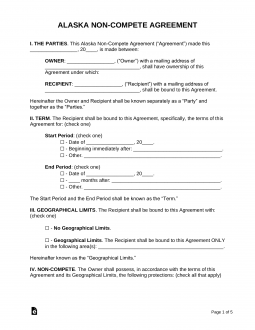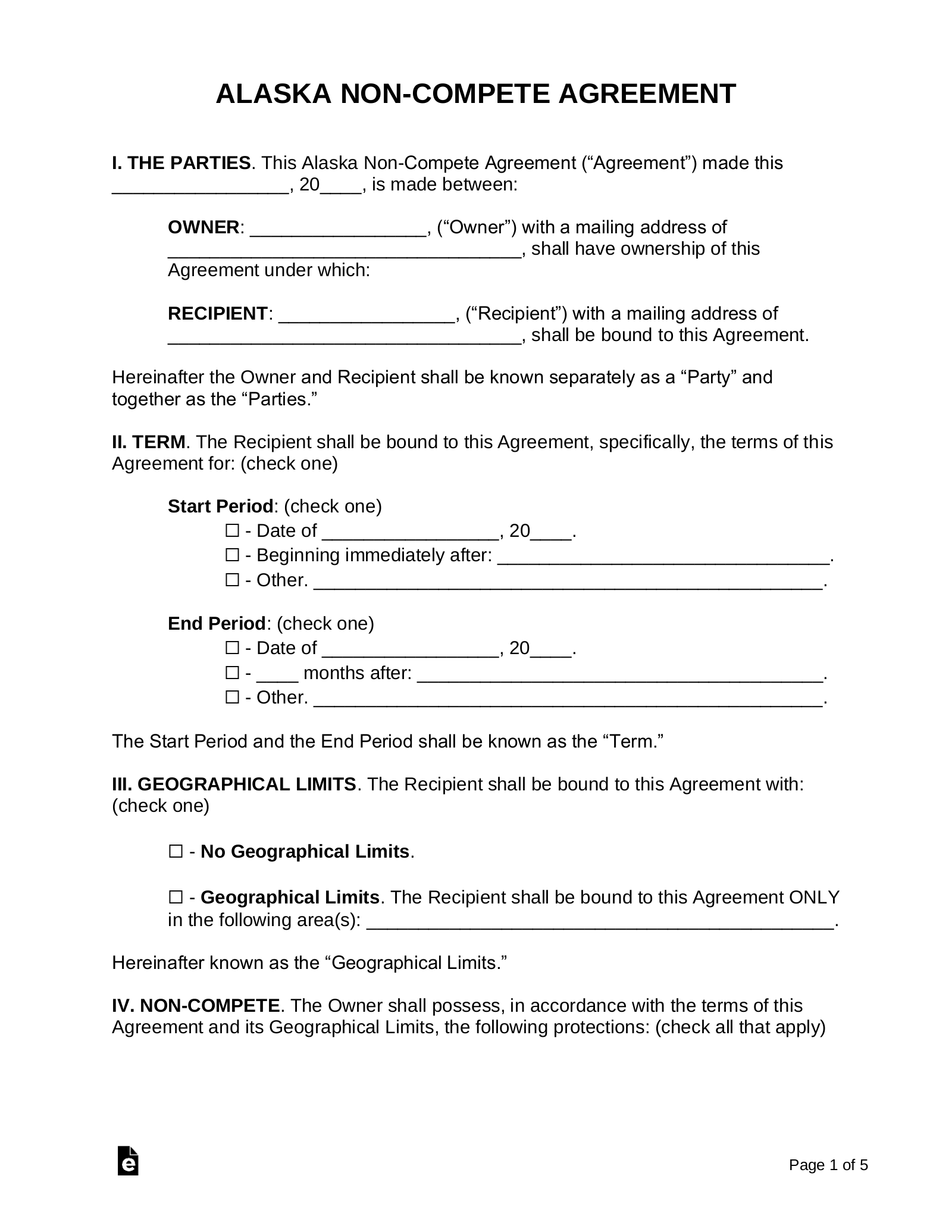Updated February 17, 2024
An Alaska non-compete agreement is an agreement that prohibits a person from practicing in the same business industry as someone else. This is common in employment relationships when employees can access confidential and proprietary information.
The primary purpose of a non-compete is to prohibit current or former individuals from using trade secrets against a business they had access to confidential information.
LAWS |
Legally Enforceable?
Yes, a non-compete is legal in Alaska to protect trade secrets by reasonable means.[1]
Reasonableness in the context of employment should consider the following factors:[2]
- Time and space. The absence or presence of limitations as to time and space;
- Sole contact. Whether the employee represents the sole contact with the customer;
- Trade secrets. Whether the employee is possessed of confidential information or trade secrets;
- Eliminate competition. Whether the covenant seeks to eliminate competition that would be unfair to the employer or merely seeks to eliminate ordinary competition;
- Stifle skills. Whether the covenant seeks to stifle the inherent skill and experience of the employee;
- Disproportional. Whether the benefit to the employer is disproportional to the detriment of the employee;
- Sole means of support. Whether the covenant operates as a bar to the employee’s sole means of support;
- Talents gained during employment. Whether the employee’s talent, which the employer seeks to suppress, was developed during the period of employment; and
- Incidental. Whether the forbidden employment is merely incidental to the primary employment.
Blue Penciling
Blue penciling is allowed in Alaska and lets the court modify an unreasonable non-compete to be reasonable.The court’s specific language regarding this is to:
hold that if an overbroad covenant not to compete can be reasonably altered to render it enforceable, then the court shall do so unless it determines the covenant was not drafted in good faith. The burden of proving that the covenant was drafted in good faith is on the employer.[5]


